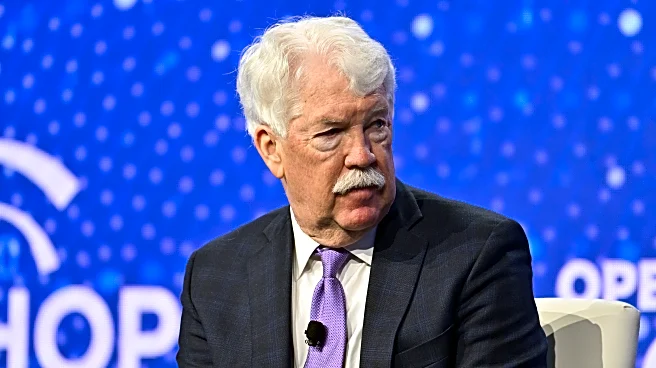What's Happening?
Chief U.S. District Judge Mark Walker has allowed Upside Foods to proceed with its lawsuit against Florida's ban on cultivated meat. The company argues that the law violates the dormant Commerce Clause of the U.S. Constitution, which is designed to prevent
discrimination against interstate commerce. The ban, signed into law by Governor Ron DeSantis, makes it illegal to sell or manufacture cultivated meat in Florida. Upside Foods contends that the law was enacted to protect Florida's agricultural industry from out-of-state competition. The judge dismissed other claims related to federal poultry-products law but upheld the Commerce Clause argument.
Why It's Important?
The decision to allow the lawsuit to proceed is significant as it challenges the state's ability to regulate food products that have been approved at the federal level. If successful, the case could set a precedent for other states considering similar bans, potentially impacting the cultivated meat industry nationwide. The case highlights the tension between state and federal regulations, particularly in emerging industries like cultivated meat. The outcome could influence consumer choice and the availability of sustainable food options, as well as affect the economic interests of local agricultural businesses versus innovative food technology companies.
What's Next?
The legal proceedings will continue as Upside Foods pursues its case in federal court. The company has appealed a previous decision denying a preliminary injunction to halt the law, and the issue remains pending in the 11th U.S. Circuit Court of Appeals. Stakeholders, including other cultivated meat companies and advocacy groups, will likely monitor the case closely, as its outcome could influence future legislative actions and the growth of the cultivated meat industry.
Beyond the Headlines
The case raises broader questions about the role of government in regulating new food technologies and the balance between protecting local industries and fostering innovation. Ethical considerations regarding animal welfare and environmental sustainability are also part of the debate, as cultivated meat offers an alternative to traditional meat production. The lawsuit could prompt discussions on consumer rights and the extent to which government should influence dietary choices.
















